SANEF Action Plan for Sustainable Media
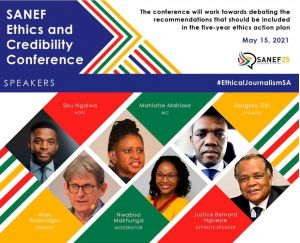 The South African National Editors’ Forum should lobby for the establishment of a Media Sustainability Fund, an annual barometer of media ethics and ongoing mental health support for journalists.
The South African National Editors’ Forum should lobby for the establishment of a Media Sustainability Fund, an annual barometer of media ethics and ongoing mental health support for journalists.
These were among the top activities identified at a ground-breaking SANEF Media Ethics and Credibility Conference held today (Saturday, May 15, 2021) which was attended by well over 100 media stakeholders. The conference will inform the strategic path for SANEF’s five-year action plan.
The conference is the culmination of a journey that started in 2019 when the organisation commissioned an independent inquiry into media credibility and ethics with a panel led by retired Judge Kathy Satchwell and panel members author and veteran journalist Rich Mkhondo and award-winning journalist Nikiwe Bikitsha.
Since the release of the Satchwell Report in January this year, SANEF has hosted a series of public webinars to discuss the panel’s recommendations. The results of these discussions were presented at today’s conference and key activities identified to finalise an inclusive five-year action plan that will reflect more accountable and ethical reporting.
SANEF also launched a report on policy options for media sustainability, as part of its response to the devastating impact of COVID-19 regulations on media houses. The report facilitates ongoing support to promote citizen access to news services in the digital age.
When SANEF also launched the fund to support journalists who have lost their jobs, it committed to this.
The report, titled “Media Sustainability and Universal Access to Public Interest Journalism”, captures the emerging international consensus on the need to support journalism as a public good. The sustainability policy proposal includes:
- The establishment of a Media Sustainability Fund to support the development, sustainability and independence of public interest journalism and strengthen ethical practices in the media. It is envisaged that such a fund would support a media ecosystem in which all types of media will thrive, by strengthening regulatory bodies, encouraging innovation and training, and backing public interest reporting projects and local content production.
- Universal access to news media via zero-rated public interest news websites
- A commitment to running mental health workshops for journalists; and to develop strategies to counter cyberbullying.
- Measures to ensure sustainable co-existence and fair competition between news media and tech platforms in the digital economy.
- Tax relief, subsidies and other state support for media sustainability
- Alternative income-generating models for news media
- Public interest news wires and community media content sharing arrangements
- Training and media & information literacy programmes
The report will be used to guide interactions with government, corporate South Africa, funders and civil society on ways to support journalism as a public good and as a key pillar of the South African democratic system.
Guest speakers all challenged the media fraternity to work towards ethical journalism that serves the public interest.
Keynote Speaker Judge Bernard Ngoepe called on the media to work towards a “perfect society”.
“Patriotism to society – not to the government or political parties – was key to the practice of journalism,” said Judge Ngoepe.
“It is not enough to think it is acceptable to print just because the law or the code does not prevent it. Journalists should be guided too by whether it makes a positive contribution to society,” he said.
Former Business Day editor Songezo Zibi noted that independent and trusted news media was essential: “Journalism is an indispensable pillar of democracy because it provides a channel for the elected representatives of the people and other public officials to communicate truthfully with the public so that the people always know what is being done in their name”.
“On the flip side, it provides a platform for ordinary people to share views with one another, and to lay bare for all, including the people they have elected, to see what their needs are,” Zibi said.
He noted that the credibility of journalism was drawn from their integrity and it is important for journalists and editors to remain humble and committed to truth out of respect for the public and its welfare.
“Journalists do not always remember this sacred duty. They can be careless, arrogant and untruthful. When their mistakes are pointed out, they can double down and, as the saying goes: “stand by their story.” This is not a good thing, and although not pervasive, we still see it too often for comfort,” he chastised.
Zibi called on journalists to protect their credibility: “Credibility is everything. That credibility must be continuously earned because of consistent ethical application of the craft itself”.
“I know better than most that it is hard being a journalist. The pay is poor, resources scarce and the work is dangerous. However, it is also a calling and a sacred duty. Let us continue to respect it and treat it with the reverence it deserves, for to do so, is to honour the blood and tears of those who fought for this system of self-government we ought to protect with all we have,” Zibi said.
Former Guardian editor Alan Rusbridger, in conversation with SANEF secretary-general Mahlatse Mahlase said it was self-evident that we wanted quality journalism. “We need to be better than the internet,” he described.
Rusbridger responded to various questions from the audience including the commitment of the media to whistle-blowers. He asked the media to examine whether they had done enough to protect whistle-blowers, whether they have adequate systems in place and whether journalists knew how to deal with the issues.
SANEF will review all the inputs ahead of finalising an action plan to build ethical and sustainable media.
Ends/
Songezo Zibi’s full speech: https://sanef.org.za/sanef-ethics-and-credibility-conference-songezo-zibis-speech/
SANEF’s Sustainability Report: https://sanef.org.za/media-sustainability-and-universal-access-to-public-interest-journalism/
You can find the webinar series here.
Note to Editors: The South African National Editors’ Forum (SANEF) is a non-profit organisation whose members are editors, senior journalists and journalism trainers from all areas of the South African media. We are committed to championing South Africa’s hard-won freedom of expression and promoting quality, ethics and diversity in the South African media. We promote excellence in journalism through fighting for media freedom, writing policy submissions, research and education and training programmes. SANEF is not a union.
For more information please contact:
- Sbu Ngalwa – SANEF Chairperson (073) 404-1415
- Adriaan Basson – SANEF Deputy Chairperson (082) 562-2113
- Mahlatse Mahlase – Secretary General (083) 399-2852
- Nwabisa Makunga – Treasurer (082) 555-1972
- Mary Papayya – SANEF Media Freedom Chair (082) 379-4957
- Asanda Ngoasheng – Western Cape Convenor – 082 610 9374
- Judy Sandison – SANEF KZN Convenor (082) 571-3334
- Katy Katopodis – SANEF Gauteng Convenor (082) 805-7022
- Chiara Carter – SANEF Eastern Cape Convenor (082) 659-9162
Twitter: @SAEditorsForum
Email: [email protected]
Website: SANEF

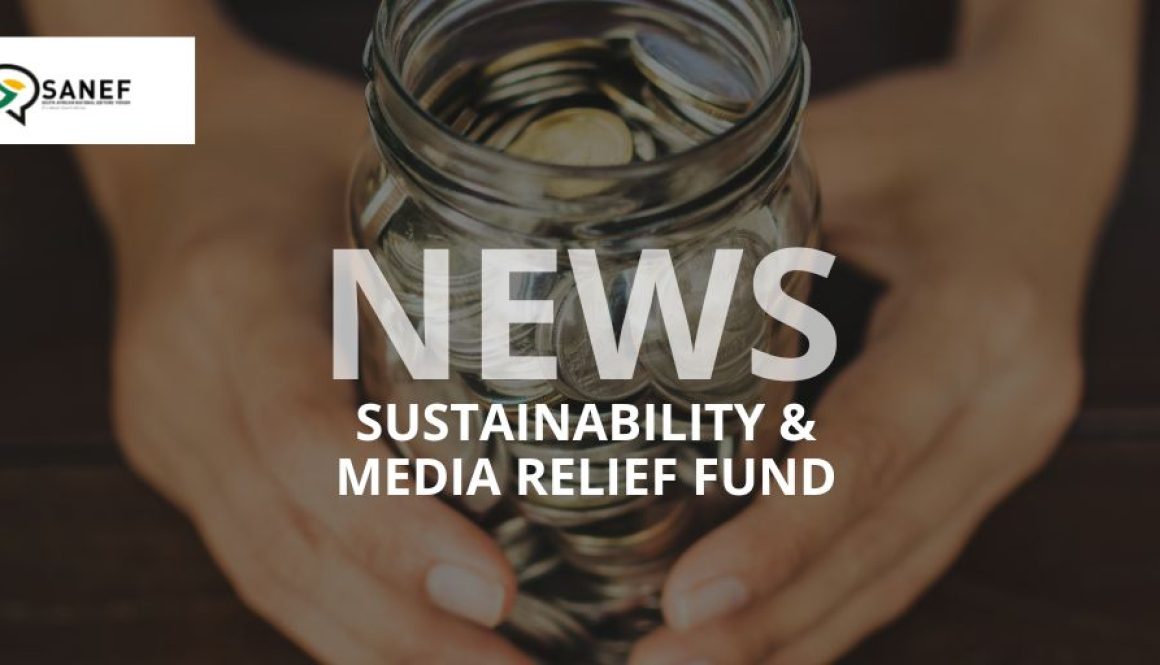
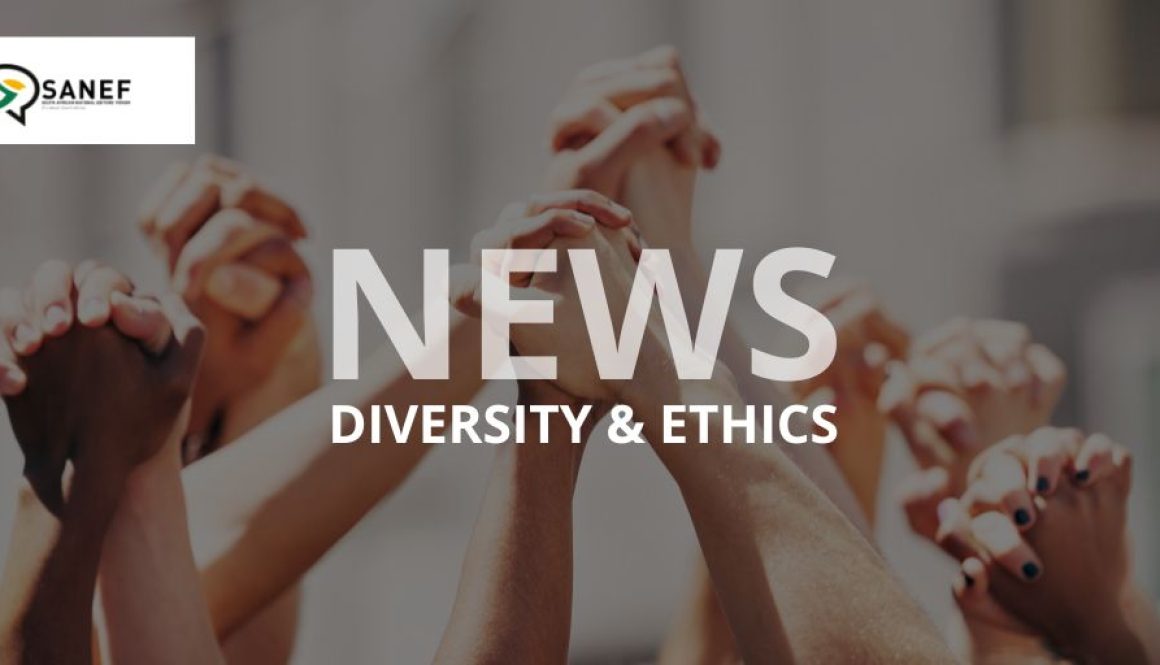



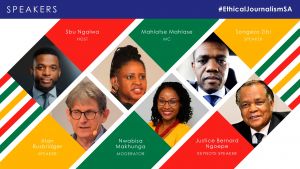
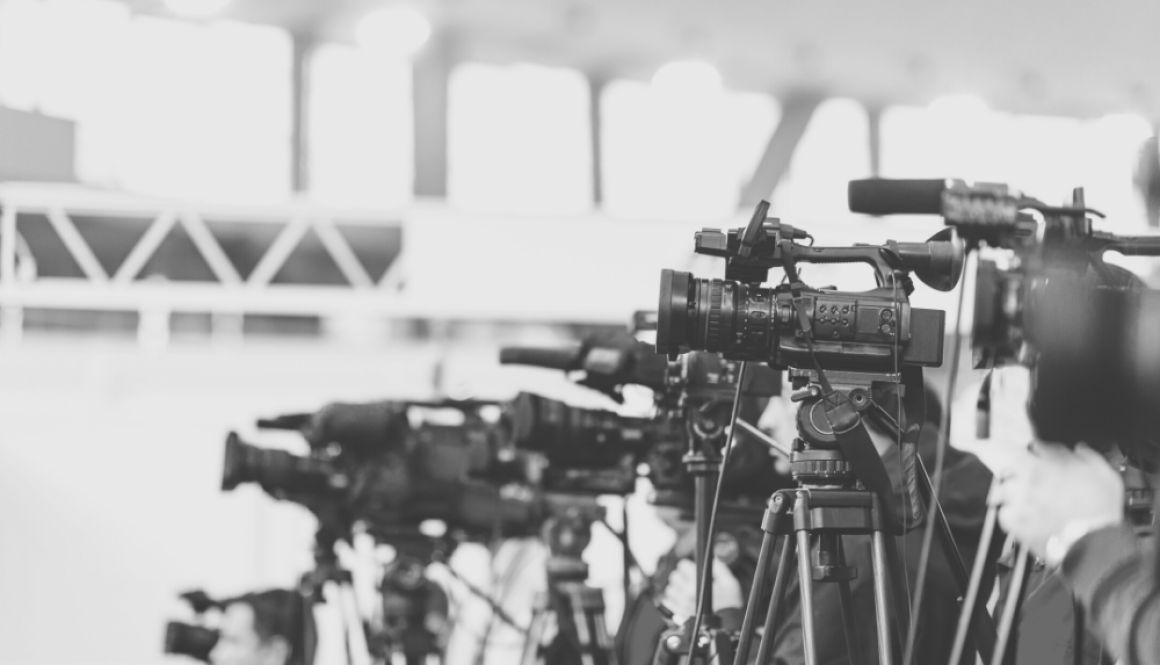
 Barely a week after we celebrated International World Press Freedom Day on 5 May 2021, the South African National Editors’ Forum (SANEF) notes the harrowing online attack on another female journalist by a senior politician. This time Ms Bathabile Dlamini, President of the ANC Women’s League (ANCWL), has singled out seasoned journalist Qaanitah Hunter, political editor at News24. This after News24 published an article titled “Bathabile Dlamini faces resistance over calls for ANCWL to support Magashule”.
Barely a week after we celebrated International World Press Freedom Day on 5 May 2021, the South African National Editors’ Forum (SANEF) notes the harrowing online attack on another female journalist by a senior politician. This time Ms Bathabile Dlamini, President of the ANC Women’s League (ANCWL), has singled out seasoned journalist Qaanitah Hunter, political editor at News24. This after News24 published an article titled “Bathabile Dlamini faces resistance over calls for ANCWL to support Magashule”.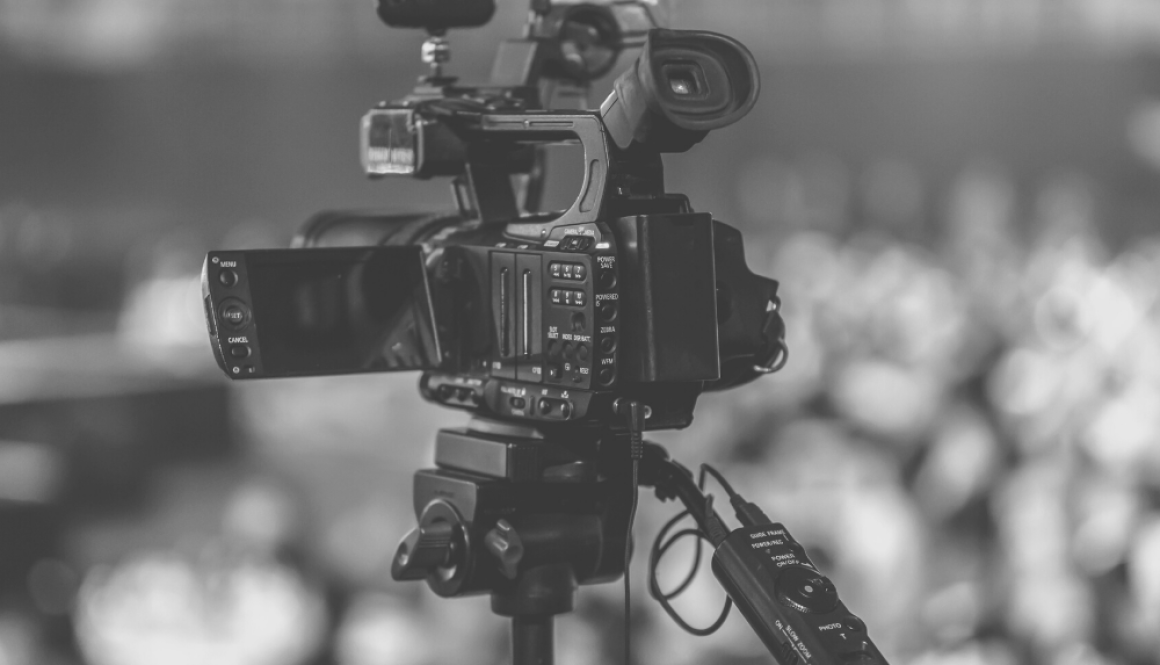
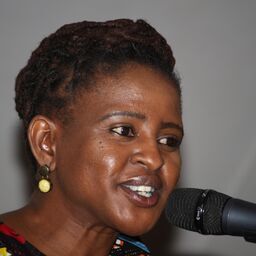
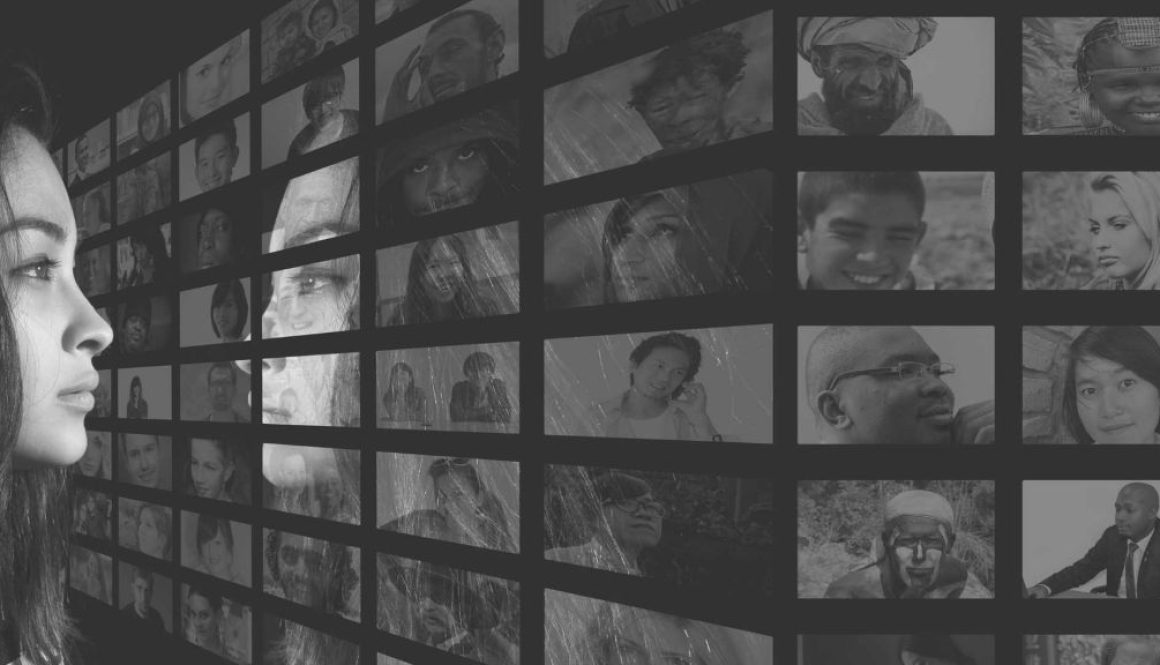
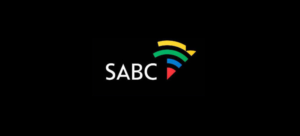 The South African National Editors’ Forum (SANEF) calls on political leaders to stop interfering in newsroom matters.
The South African National Editors’ Forum (SANEF) calls on political leaders to stop interfering in newsroom matters.
